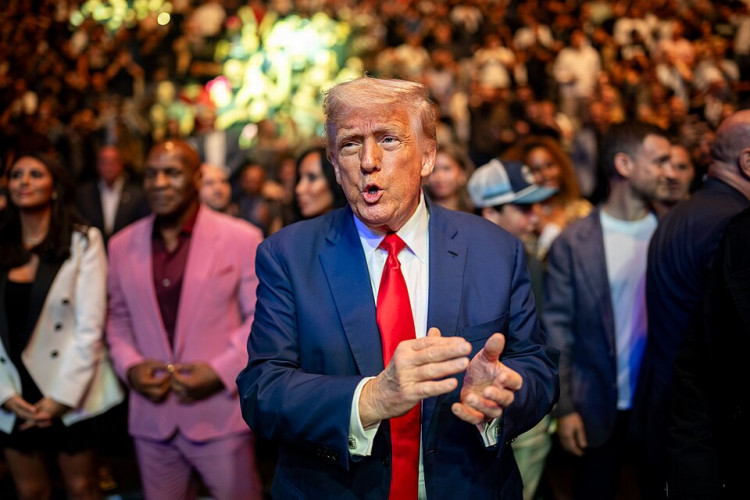President Donald Trump is facing intensified scrutiny over the intersection of presidential power and private financial interests after Bloomberg News reported that the Trump family has lost roughly $1 billion in net worth tied to collapsing cryptocurrency markets. The slide, which reduced the First Family's combined wealth from an estimated $7.7 billion in September to about $6.7 billion today, has renewed questions about presidential ethics as Trump pursues aggressive crypto-friendly policies while the family maintains large digital-asset holdings.
A significant portion of the decline stems from Trump Media & Technology Group Corp., the parent company of Truth Social, whose stock fell to a record low in recent weeks. Bloomberg News estimated that the market drop erased about $800 million from Trump's personal stake. The company had accumulated approximately 11,500 Bitcoin at an average purchase price of $115,000, a position Bloomberg calculated had lost about 25 percent of its value amid the broader market downturn.
The Trump family's flagship crypto venture, World Liberty Financial, also suffered a steep contraction. The WLFI token-once valued at $6 billion at its peak-is now worth just over half that, trading at roughly 15 cents compared with 26 cents in September. Despite the losses, a project spokesperson defended the long-term strategy, insisting that "crypto is here to stay."
Eric Trump's industrial mining partnership with Hut 8 Corp., launched under the name American Bitcoin Corp, has been hit by the same market pressures impacting global miners. Shares of Hut 8 have dropped by half since September, removing more than $300 million from Eric Trump's assets. Another family-linked venture-the Trump-branded memecoin introduced in January-has declined by about $117 million since August and now stands at approximately $310 million in value.
The timing of the downturn has sharpened criticism of Trump's policy priorities. In January, he signed an executive order directing the federal government to promote digital-asset growth. Two months later, he established a national strategic Bitcoin reserve, saying it positioned the United States "as a leader among nations in government digital asset strategy." Watchdog groups argue the initiatives align too closely with the family's private investments. When Trump hosted major memecoin investors at a gala dinner in May, former White House special counsel Norm Eisen called the move "an ethics nightmare." The administration rejected the claim.
The overlap between policy and profit intensified further in October when Trump granted a presidential pardon to Binance co-founder Changpeng Zhao. Zhao, who had pleaded guilty to enabling money laundering and served a four-month sentence, previously helped promote World Liberty Financial, boosting early valuations of the Trump-associated token. Critics alleged the pardon was politically and financially motivated. The White House defended the decision, portraying it as a corrective to what it labeled former President Joe Biden's "war on cryptocurrency."
Even as the market downturn cuts into their balance sheet, members of the Trump family have continued to express confidence in digital assets. Eric Trump recently dismissed concerns about the losses, characterizing the moment as "a great buying opportunity." Yet ethics experts argue the volatility illustrates the hazards of a White House whose financial interests remain deeply embedded in speculative markets.






